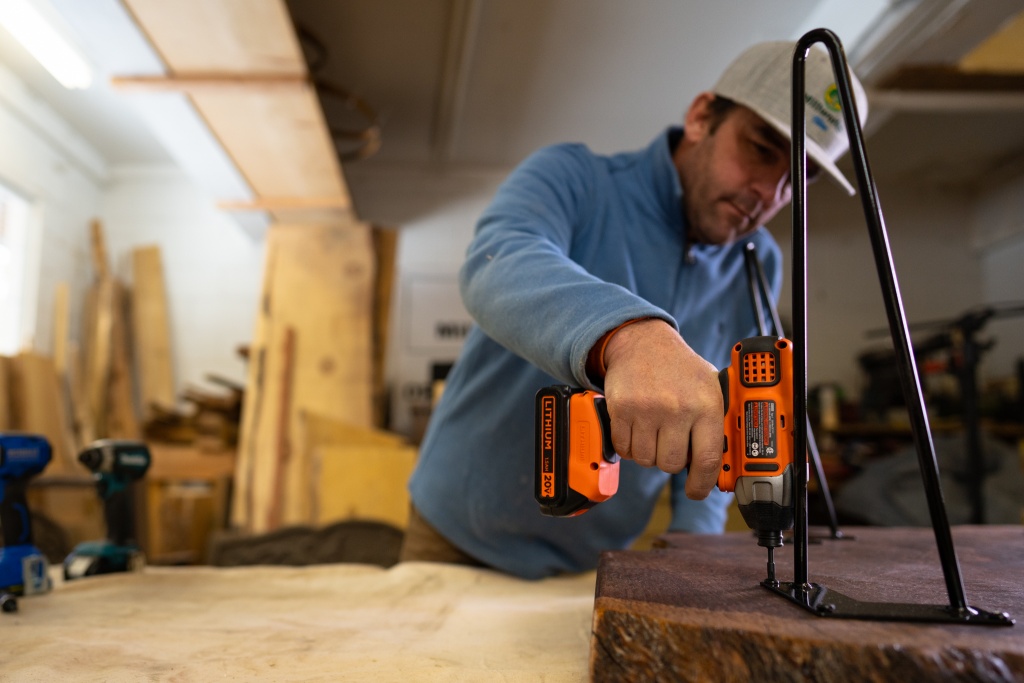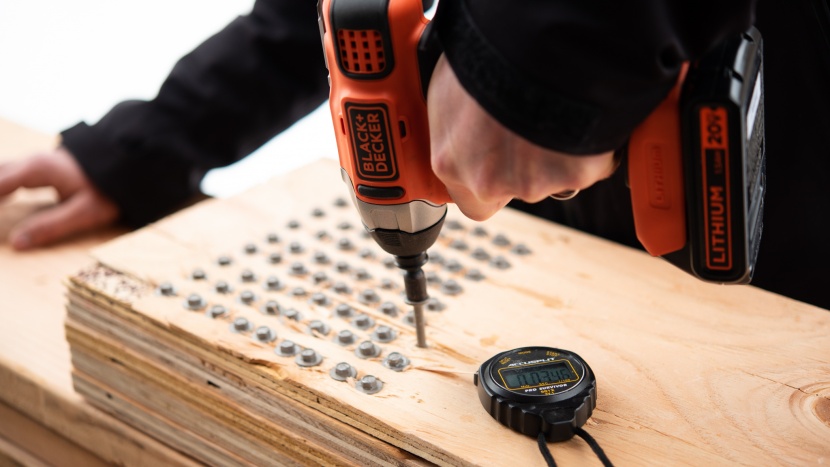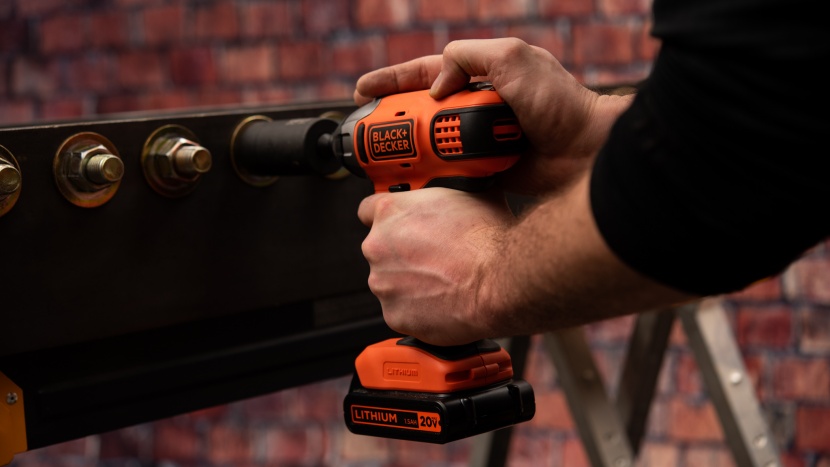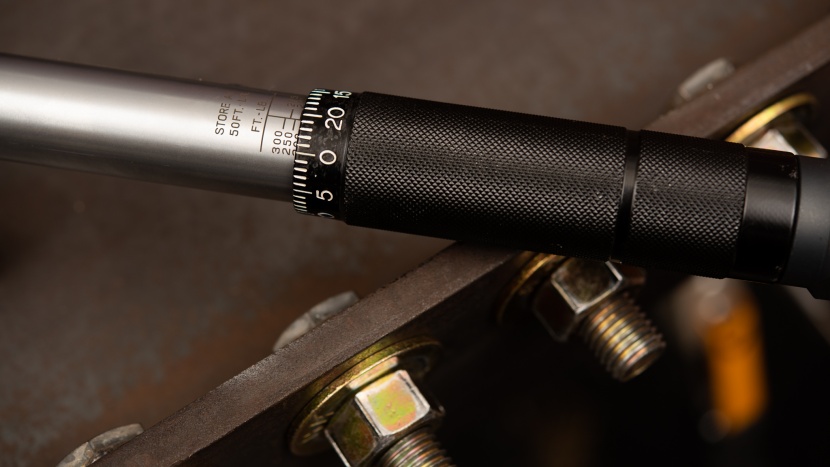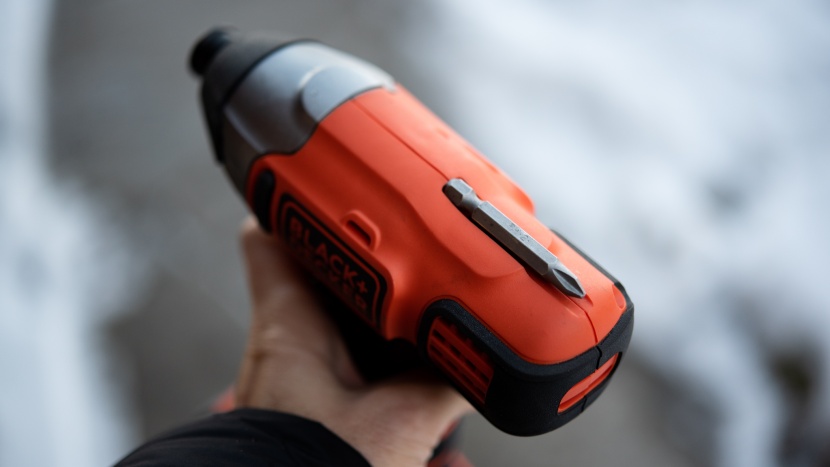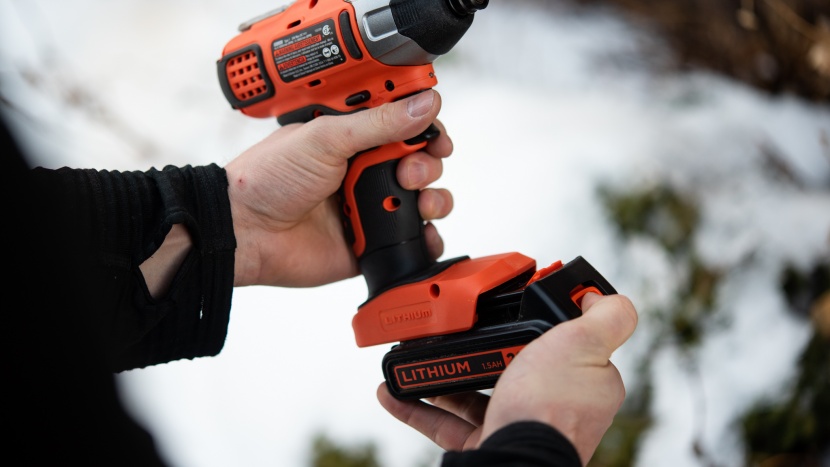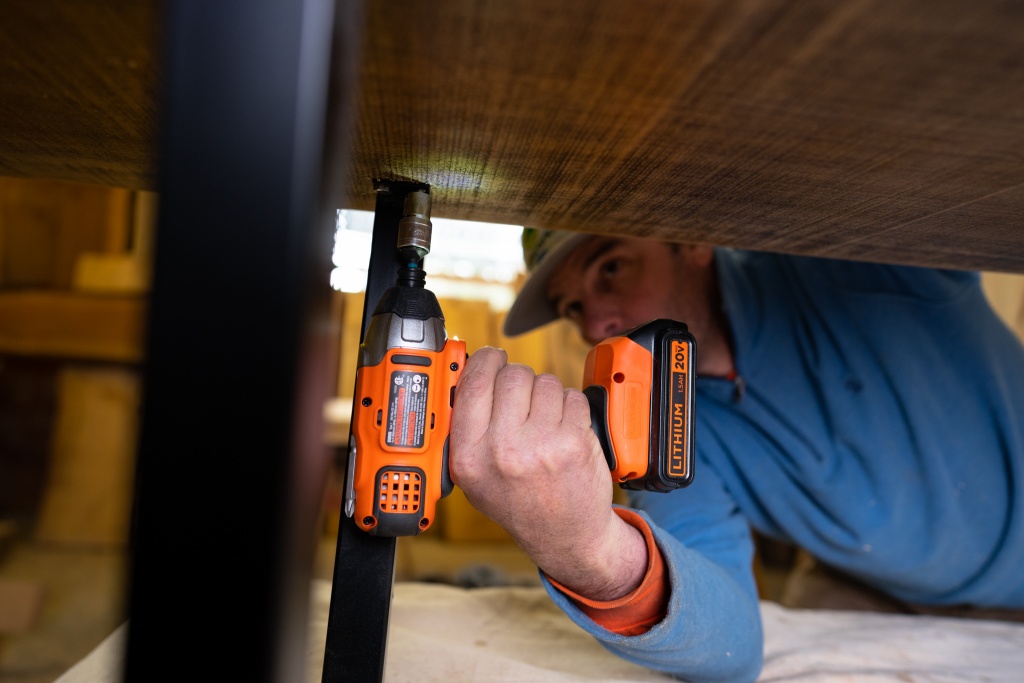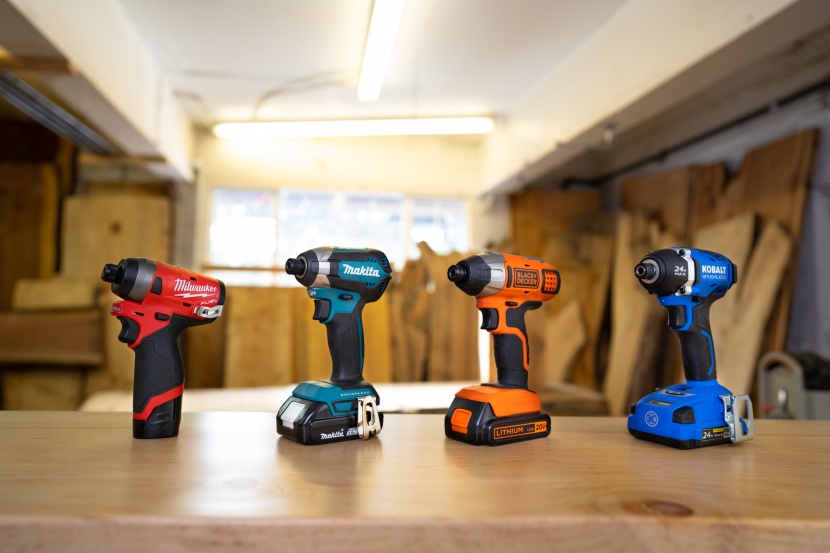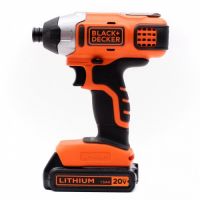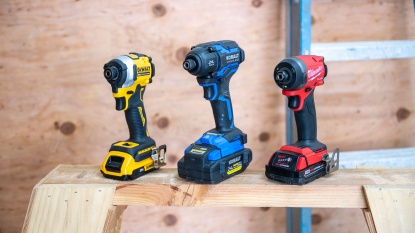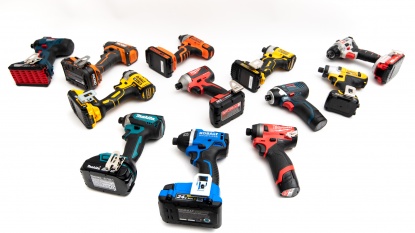
Our Verdict
Our Analysis and Test Results
If you're looking for an impact driver on a tight budget, the Black+Decker 20V Max offers fair performance at an accessible price. I liked the magnetic bit holder on top of the tool body, and although it doesn't compete with many of the other impact drivers I reviewed, it's still a well-functioning tool capable of helping you with various light-duty tasks.
Speed
To score each impact driver for speed , I divided the metric into two tests — one using 3-5/8" ledger screws and one using a large, 1/2" x 3" lag bolt. For the ledger screw portion, I drove five screws into a stack of plywood, timed each trial, and then calculated an average. The Black+Decker did fairly well in this assessment, averaging 6 seconds.
The second half of the speed test was comprised of drilling an 11/32" pilot hole into a stack of 2x12 boards, then timing how long it took to get the 1/2" x 3" lag bolt fully driven, and then how long it took to remove it. The Black+Decker didn't perform quite as well during this portion of our speed testing. It took 45 seconds to sink the fastener, and to remove it required 13 seconds. Slowly or not, it did eventually get the job done.
Torque
To test torque, I welded ½" grade 8 steel bolts to an I-beam to measure how much twisting power each impact driver can produce. First, I used each impact driver to tighten three nuts onto three bolts at their highest setting for 5 seconds. I then used a torque wrench to measure the tightness of each nut. The Black+Decker tightened the nuts to an average of 115 foot pounds of pressure. While 115 foot pounds is adequate for some jobs, it falls short in many cases and is something to keep in mind.
I then used the torque wrench to tighten the nuts to see how strong each driver was when loosening tightened fasteners. The BDCI20C was able to break nuts free that were tightened to 175 foot-pounds, but failed to break the nuts tightened to 200 foot-pounds. For reference, our torque breaking test starts at 75 foot-pounds and gradually increases in 25 foot-pound increments all the way up to 300. Although only a few of the impact drivers I tested were able to break loose, the fasteners tightened to 300-foot pounds; the Black+Decker 20V Max is among the lowest performing in this particular test.
Convenience
To assess convenience, I began by weighing and measuring the dimensions of each impact driver. Next, I moved to more subjective scoring based on built-in features and any innovative elements of the design.
The Black+Decker has a measured length of 168 mm, making it one of the bulkiest drivers in our impact driver review. Weighing two pounds without the battery, it's not especially heavy. I also found the lack of a belt clip a bit disappointing.
The light on the Black+Decker is useful. I love that I can turn the light on by slightly depressing the trigger without activating the actual driver. This is useful when you need to see what you're doing before tightening or loosening a fastener. One feature that sets this model apart from the others is the magnetic bit holder on top of the tool. It's very useful to be able to have an extra or alternative bit ready to go at all times.
Battery
To test batteries, I used each driver to sink 14 3-5/8" ledger screws, then drive and remove one ½" x 3" lag bolt. I started the stopwatch and repeated this process until the battery was totally dead.
Unfortunately, the Black+Decker could only complete one entire set of our trials. On the second trial, it completed the 14 ledger screws, and it was able to drive the lag bolt but died before removing it. Although the manufacturer does offer larger battery sizes, if battery life is a large concern of yours, it would be wise to go with a model that uses its battery capacity more efficiently.
Noise
Using a sound meter, I took four individual readings while driving ledger screws to calculate an average. Impact drivers are generally loud, and the BDCI20C is no exception. This model produces 97 decibels while in operation, which is below the average of 98 decibels I measured across the whole group. However, because I've tested impact drivers that are much quieter, I had no choice but to give this tool a poor score for the metric. Referencing safety standards from both the National Institute for Occupational Safety and Health (NIOSH) and the Occupational Safety and Health Administration (OSHA), I found 97 decibels is safe for around a half hour and up to two hours, but anything more than that puts you at risk for noise-induced hearing loss. I recommend hearing protection when using any of the impact drivers I tested, as they are all quite loud, depending upon your work environment.
Should You Buy the Black+Decker 20V Max Impact Driver?
While the Black+Decker BDCI20C isn't the highest-performing impact driver, it easily handles most jobs, especially lighter-duty projects. On a tight budget, this driver offers a lot of bang for your buck and is quite versatile as an entry-level power tool.
What Other Impact Drivers Should You Consider?
If you're in the process of trying to find which impact driver is best for you, we'd have a hard time recommending the Black+Decker 20V Max unless you're on the tightest of budgets and might only use it occasionally for light-duty work. There are much better options, but none at the price of the Black+Decker. If you're willing to spend more money, the Makita XDT13 is an incredibly fast and strong driver that outperforms the Black+Decker in every metric. For working professionals and frequent DIYers, I recommend investing in one of our top performers like the Milwaukee M18 Fuel 2953 or the Kobalt XTR Max 24V. Both are workhorses with some of the best speed and torque, and the Kobalt has the best battery of any driver we've tested.
| Awards | Best on a Tight Budget |
|---|---|
| Price | $70 List Check Price at Amazon |
Overall Score  |
|
| Star Rating | |
| Bottom Line | A versatile and affordable driver for those on a budget |
| Pros | More affordable, magnetic bit holder |
| Cons | Slower, less powerful torque, noisy |
| Rating Categories | Black+Decker 20V Max... |
| Speed (35%) | |
| Torque (25%) | |
| Convenience (20%) | |
| Battery (15%) | |
| Noise (5%) | |
| Specifications | Black+Decker 20V Max... |
| Average Measured Total Time for Lag Bolt Test | 58 seconds |
| Average Measured Time: Plywood Ledger Screw Test | 6 seconds |
| Average Measured Fastening Torque | 152 ft-lb |
| Average Measured Breaking Torque | 220 ft-lb |
| Measured Length | 168 mm |
| Average Measured Decibels While Using | 97 dBa |
| Impact Driver Model # | BDCI202 |
| Quick Bit Insert | No |
| Bit Holder | Yes |
| Multiple Fastening Modes | No |



